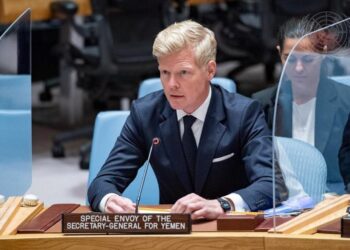Before to the first race of the next track season in Bahrain, Lewis Hamilton and his fellow Formula One competitors have been asked by human rights organisations to speak out against violations of human rights. They were called to join forces with a Bahrain-based human right activist.
Before the Bahrain Grand Prix, the European Centre for Democracy and Human Rights wrote to Hamilton and other Formula One drivers asking for their assistance in spreading the word about notable human rights advocate Abdulhadi al-Khawaja. al-Khawaja was imprisoned for life after taking part in Bahraini anti-government rallies in 12 years ago.
A statement by the center asserted that “this is of the utmost importance now that the FIA [Fédération Internationale de l’Automobile] wants to take power over how drivers can express themselves through the amendments made to FIA’s International Sporting Code for 2023, threatening to sanction all drivers who do not maintain a neutral stance on personal, political or religious matters.”
The letter makes reference to an argument that recently took place between the motorsport racing organisation and its drivers after it revised its regulations to forbid “political, religious, or personal” statements from being uttered without prior consent.
Drivers immediately criticised the FIA, with Hamilton promising to keep talking about the subjects that are important to him.
“I feel like we’ve made progress.” In an interview with Sky News, he said, “I think we’ve seen fantastic progress, but there’s more to do and we’re still travelling to regions where there are still problems. I know there is work being done in those places, too, and these things sometimes take time.
He continued by saying that he would continue to be myself and to stand up for the causes I care deeply about. Nobody could stop me from carrying out that plan. Drivers must get prior written consent to make or exhibit “political, religious, and personal remarks or opinions,” as per an addendum to the sports code made by the FIA in December.
Hamilton and Others, Two Choices
After receiving criticism, the FIA said that drivers would only be permitted to express their political views in “extraordinary” situations, in “their own space,” outside of competition, on social media, or in an interview. If they reject the law while moving forward, they will still be subject to penalties.
Hamilton is urged by ECDHR in a letter to convey messages of sympathy with individuals experiencing hardship by the Bahraini government and to assist bring attention to al-plight.
“We hope your openness to be informed about the human rights situation in the countries you race in will inspire others to follow your example, because, as you have rightfully pointed out, ‘one person’ can only make a certain amount of difference, and there is a ‘need for collective support’ to make a difference,” part of the letter read.
The message is published less than a day after human rights activists in the UK encouraged the drivers to prevent the sport from devolving into a “moral vacuum” by speaking out during the first race in Bahrain and the next in Saudi Arabia.
There are now two options available to F1. One is a path that the administrators and leaders appear to be on, which is a moral void. There is a different route that some motorists appear to be choosing. They recognise that they can utilise their position and sport to promote peace and change.
They cannot overlook the violations of human rights occurring in the nation they are travelling in. Hamilton has already utilised his celebrity to speak out against racial injustice and violations of human rights all across the world.







